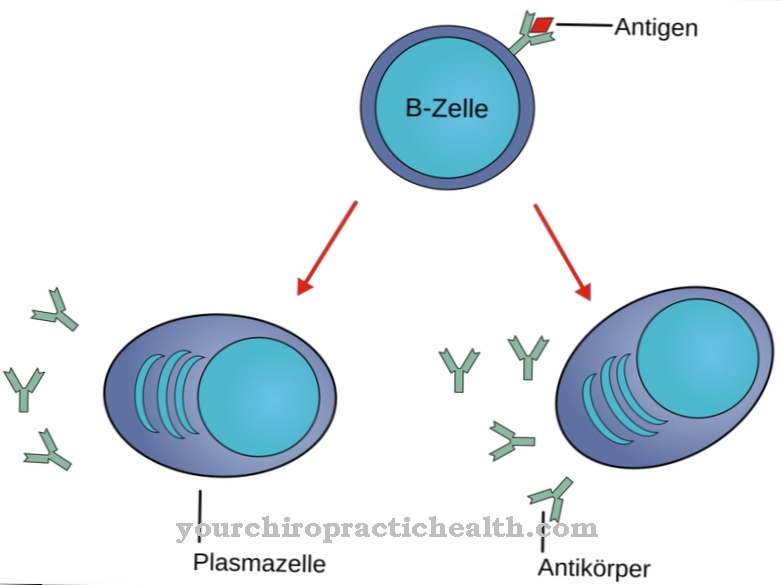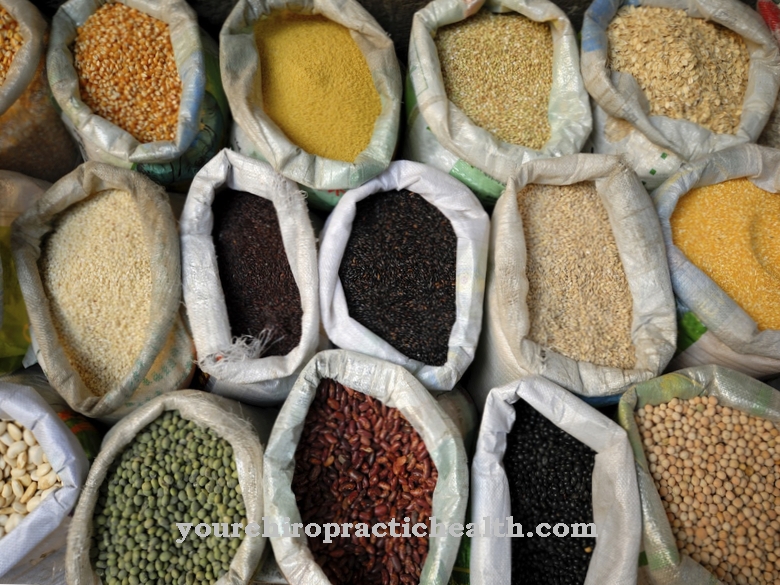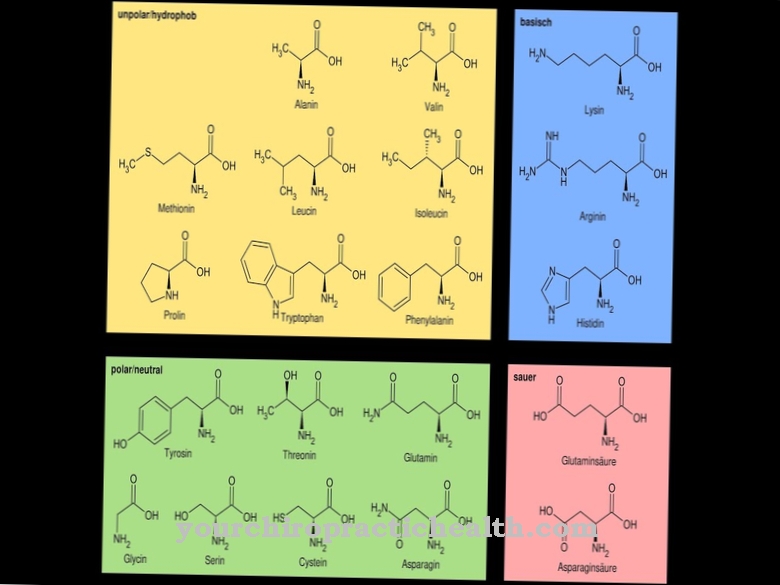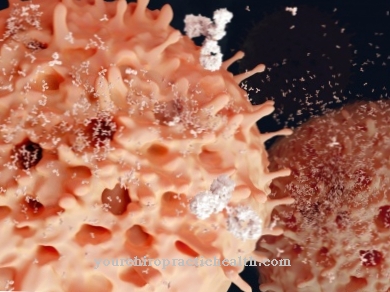Prohormones are physiologically ineffective or only slightly effective precursor substances of hormones. The body's metabolism can convert the prohormones into the actual, physiologically effective hormone in one or more steps as required. It is a very complex hormone regulation system that plays a major role in the activation of steroid hormones.
What is a prohormone?
Physiologically highly effective hormones such as steroid hormones, and to a lesser extent other hormones, must be easily controllable in their concentration by the body. Above all, the complex interplay of hormones requires physiological adjustment screws that the body's metabolism can unconsciously use for humans.
Prohormones offer one of several possibilities for the metabolism to be able to directly influence the concentration of certain hormones. Prohormones are physiologically inactive or only slightly active. This means that they have no or only a weak hormonal effect and are harmless to the body even in higher concentrations, as long as they are not converted into the physiologically active hormone. Prohormones can be viewed as a store of certain hormones that the metabolism can dispose of at any time by converting it into the active form.
Prohormones are of greatest importance as precursors for a large number of steroid hormones such as the stress hormones cortisol, corticosterone and the sex hormones testosterone, progesterone, estradiol and many others. The well-known vitamin D3 (cholecalciferol) is also a de facto precursor of the hormone calcitriol.
Function, effect & tasks
The main function and effect of prohormones on the body resides in their potential physiological effectiveness, active hormone. The metabolism can influence the effectiveness of certain hormones via several control mechanisms.
By converting prohormones, it can increase the concentration of the particular hormone and thus achieve a stronger hormonal effect, or if the hormone is overconcentrated, it can reduce the performance of the receptors in order to dampen the hormonal effect. As inactive reserve hormones, prohormones make an important contribution to regulating the interaction of hormones, especially steroid hormones. A very well-known prohormone is thyroxine (T4), a non-proteinogenic amino acid that can be converted into triiodothyronine (T3) by the metabolism. Triiodothyronine is a hormone that is normally produced in the thyroid gland and is required for a large number of material conversions in the body.
In the case of an underactive thyroid or a complete failure of the thyroid or after surgical removal of the gland, the body is dependent on the supply of the prohormone thyroxine within relatively narrow limits. It fulfills a life-sustaining function. In sports that focus on building muscle, the temptation is to switch to prohormones from countries such as the USA, where the sale and use of the substances is permitted, instead of the banned anabolic steroids - which are also banned in Germany. In principle, this is not recommended because the body converts the substances into the corresponding steroid hormones and the expected side effects are similar to those of the steroid hormones.
Education, occurrence, properties & optimal values
The human metabolism is able to synthesize most of the prohormones that the body needs from basic substances ingested with food. In addition, “ready-made” prohormones are consumed with foods that are left natural, which are mostly absorbed in the small intestine. For the synthesis of prohormones of steroid hormones, cholesterol is mostly used as the basic substance.
The definition of optimal values for the concentration of prohormones is not very meaningful because the required amounts depend very much on the muscular activity, on general metabolic requirements such as stress, exercise and other criteria.
In the case of a reasonably balanced diet, which also includes the consumption of foods that are as natural as possible, a separate intake of prohormones is not recommended in order to avoid unpleasant and in some cases harmful side effects. Among bodybuilders and athletes with a similar requirement profile, the opinion is widespread that the enrichment of food with certain prohormones, which are converted into anabolic hormones, would accelerate the desired muscle building.
Due to frequently observed, sometimes serious, health-related side effects, the sale of these prohormones as well as the sale of anabolic hormones is prohibited in the German-speaking countries of Germany, Austria and Switzerland. The situation is different for other prohormones such as thyroxine. If the thyroid gland is underactive (hypothyroidism), the intake of a certain amount of the prohormone thyroxine is essential. In this case the thyroxine is classified as a medicinal substance.
Diseases & Disorders
Apart from very rare - mostly genetic - metabolic disorders that lead, for example, to a lack of specific enzymes or hormones so that certain prohormones cannot be converted or broken down, the greatest risks lie in an overdose of prohormones, which lead to the formation of steroid hormones promote.
The necessary breakdown of prohormones in the liver can damage the liver and an oversupply of male sex hormones can lead to undesirable androgenisation symptoms such as loss of scalp hair, increase in body hair, acne and other symptoms. Most of the precursors to steroid hormones are listed as banned doping substances anyway. For example, too low as well as too high estrogen levels have an effect on a reduced synthesis rate of the control hormone LH in the pituitary gland, with the effect of reduced testosterone production.
If thyroxine intake is medically necessary, the quantity of the prohormone must be strictly controlled, because both overdosing and underdosing have a negative effect on a large number of metabolic functions and the psyche is also adversely affected.





.jpg)

















.jpg)



